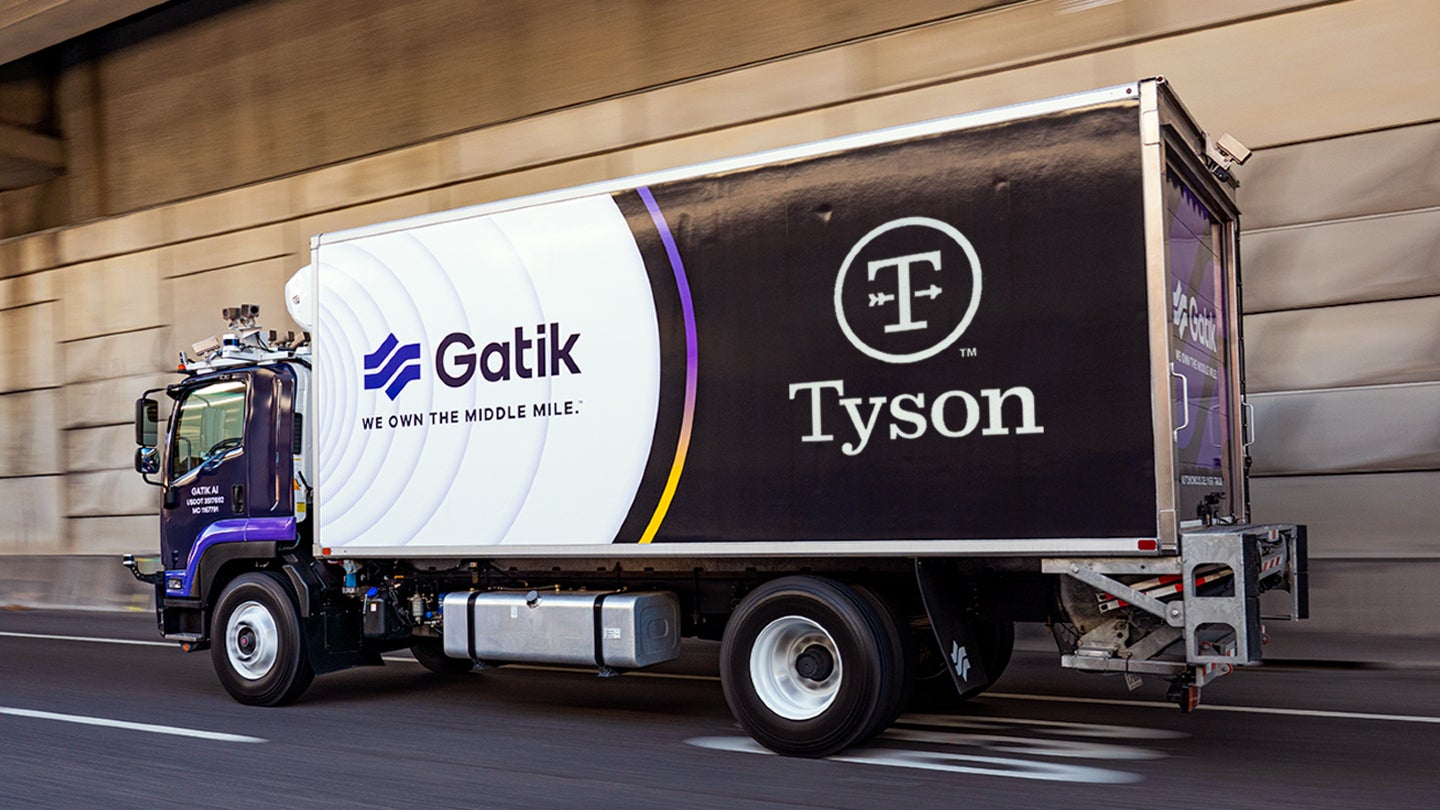
Tyson Foods announced on Wednesday (6 September) that it will deploy artificial intelligence (AI)-assisted autonomous trucks to haul its prepared meats in collaboration with Gatik – a leader in autonomous “middle-mile” logistics.
The Gatik trucks will pull refrigerated trailers, operating over predetermined short-haul routes, to the company’s distribution and storage facilities in the Rogers and Springdale areas of Arkansas.
These shorter middle-mile routes are well-suited to autonomous applications, being highly repeatable and generally remaining within state lines (thereby simplifying the regulatory environment), Tyson Foods explained.
The meat giant said the multi-year collaboration will ensure supply chain reliability amid the nationwide truck driver shortage, while elevating drivers to other transportation positions within the business. It added that “[a] safety driver will initially be present in the cab to monitor the autonomous system and take command of operating a truck if required”.
Indeed, the American Trucking Associations estimates that the shortage of drivers, which stood at around 78,000 in 2022, will likely double by 2031. It said that, over the next ten years, the industry will need to recruit around 1.2 million drivers to replace retirees and voluntary leavers.
The move to autonomous trucking will confer productivity gains because autonomous vehicles (unlike drivers) can operate around the clock.
Supply chain hirings in the consumer goods sector have grown exponentially over recent years, as companies seek to build agility and resilience in the face of recent shocks.
However, the crunch in available talent is increasingly incentivising automation. UK recruitment giant Hays, surveying over 13,000 UK employers, reports that over 75% of employers seeking to recruit into supply chain and logistics roles are expecting a dearth of applicants.
Our signals coverage is powered by GlobalData’s Thematic Engine, which tags millions of data items across six alternative datasets — patents, jobs, deals, company filings, social media mentions and news — to themes, sectors and companies. These signals enhance our predictive capabilities, helping us to identify the most disruptive threats across each of the sectors we cover and the companies best placed to succeed.
